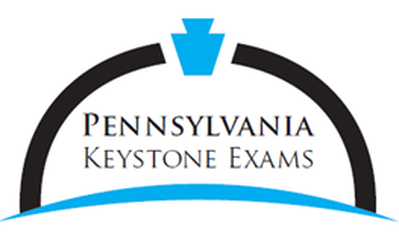 By Marissa Cohen Four days a year, freshmen and sophomores alike come to school to take the oft-dreaded Keystone exams. These days are nice for upperclassmen- they get to come in late, so they’ll sleep in or go out to breakfast. Underclassmen, however, spend the first half of the school day answering questions and writing short essays about algebra, biology, or literature. As always with standardized tests, many stakeholders take issue with various aspects of the Keystone exams. Currently, the Keystones are a graduation requirement for students in the class of 2022, but not for anyone else at North. So why did everyone graduating in 2019, 2020, or 2021 have to take them as well? The often-cited answer is that the exams used to be a graduation requirement for those students, too. But since the induction of the Keystones in the 2012-13 school year, Governor Tom Wolf has signed bills changing the rules multiple times. The original law stated that the exams would be a requirement starting with the class of 2017. The 2016 change delayed the graduation requirements by two years, to the class of 2019. Then, in 2018, legislators decided to delay the graduation requirement even further to the class of 2022. Unfortunately, the Keystones don’t seem to have any other use than to as a graduation requirement, but that changes often, as you can see. Unlike the SATs and ACTs, college admissions officers don’t care what your Keystone scores are. The fluctuation of rules and requirements has led many people to call for the removal of these exams, and they may have a valid point. Many students and parents alike consider these tests to be a waste of time. Not only can these tests provide extra stress to students who are already struggling to get all of their work done, but the exams simply test students on material for classes they’re already taking tests and getting grades for. Elena Crowell, a sophomore who has taken all three Keystones, said that “having to study for additional tests added more work and stress to my daily routine.” Underclassmen at North already have homework and studying to get done for their classes, and some are taking subject SATs; yet another test, specifically a standardized one, adds even more stress and work to the students’ schedules. There is also another, more nuanced issue with the Keystones. I spoke to both Ms. Brennan and Mr. Mann, who respectively teach biology and algebra one, both of which are Keystone-focused classes. Both teachers generally said that they don’t believe that the Keystones take time away from teaching. Mr. Mann went into specifics, saying that “because the Keystones are a state test, my curriculum follows the testing material.” The only extra curricular item that they have to teach is how to take the tests. Thus, the exams do not seem to present much of a problem for some teachers, which is certainly positive. However, these interviews raise the unseen question: if teachers are teaching the state curriculum, and students are passing the classes, then why do students need yet another mark showing that they know the material? Students have no need to prove themselves in the material for a class they already have a passing grade in, which proves that these tests are more extraneous than most people think. Perhaps when the Keystones began, there was a rhyme and reason to them. Now, because of how much the rules change, how much extra stress the tests give to students, and the redundancy of the content, that rhyme and reason is a bit more nebulous. As time passes, and as the laws surrounding the Keystones keep changing, more and more people may begin to realize that the Keystone exams serve no real purpose for the actual test takers.
0 Comments
Your comment will be posted after it is approved.
Leave a Reply. |
Archives
February 2022
Categories |
 RSS Feed
RSS Feed
